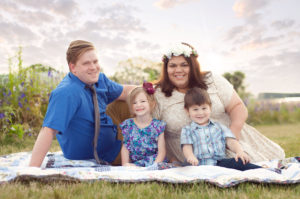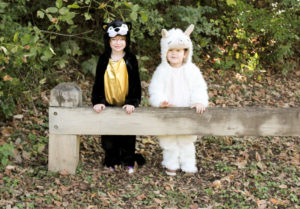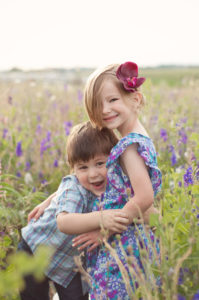30 Nov From Foster to Fostering #FostersAdopt (Part II)
From Foster to Fostering
A Personal Journey from Foster Kid to Adoptive Mother Foster Care Alumnus Kay Beckman
Part II of II
Click here if you missed Part I.
I can confidently say, the one thing that I wish I had better understood when first becoming involved in foster care as an adult is the struggle around attachment issues. I had to work through my own attachment issues while fostering, and it was much more difficult than if I had dealt with it before we brought kids into our home. I also wish I’d known how significant a role Reactive Attachment Disorder (RAD) can play in the lives of the children who come into our home. Decades ago, therapists would (and did) say, “you are like a bucket with a hole in it. Nothing will ever be good enough.” Recently, as an adult, I’ve learned that’s a great description of RAD.
Children are stuck in fight or flight mode, and nothing can seem to satisfy that fear sufficiently for them to feel safe and secure. It’s heart-wrenching, to say the least. Foster children come to us beaten, broken, hungry, neglected, scared, and missing their parents. They come, needing us to be strong and to know and meet their needs. If I was teaching a foster prep class now, I would spend weeks on attachment issues, post-traumatic stress, and trauma triggers. Until you see it first-hand, it is hard to imagine how prevalent and damaging trauma issues really are.
People offer such well-intentioned reassurances, like “I’m so glad you adopted them young!” or “they will heal, they are small”, and I want to cry… because I know that not all foster children, even the youngest, are able to leave their circumstances without long-lasting impacts. My little guy, our youngest, has anxiety to the point of hyperventilating. Why? We, along with the medical experts, don’t entirely know. Maybe he had an issue in utero. Maybe it was the impact of visits and the foster care process. We may never have a complete and definitive answer. But it’s the sad truth of foster parenting that every child who has walked through our home has been touched by trauma.
My hope for fostering in the future is to keep learning and understanding the biological parents. I hope we can foster children that get to go home! We absolutely want to be a part of success stories. We also hope to adopt again.
If you’ve been adopted and want to foster or adopt, that’s awesome! You may be a better foster parent because of it. Because you sympathize because you have been there because you GET IT. It’s been so great to be a part of a community with others who have been adopted. We all have unique stories, and that’s true for foster children, as well. They can benefit from hearing your story. Maybe you were a fostered teen, and you could foster teens. You could mentor kids who were in a spot like you were. While seeing the hardships foster children have often faced can sometimes weigh heavily on your heart, there is SO much hope in this community. I hope we encourage our children to be advocates for other kids, and that they are able to heal and move forward to love and bless others.
My encouragement, if you want to foster, is to go for it. Prepare for it. Go to therapy. Take steps to build a group around you who can provide support. Be aware that you may find yourself responsible for a little one dealing with sexual trauma, or neglect, or other issues that may trigger your own painful memories. Have a partner who is capable of understanding in the unfortunate case that you are triggered by the child’s comments. Most people are saddened and hurt by foster care stories. Fostered adults may be more sensitive. My other recommendation is to read books and articles. Read everything you can. It may not solve your problems, but it can help prepare you going forward. I often joke that I could teach foster classes or write a book on attachment issues from my own personal experiences and resources. That’s because it’s a serious responsibility to be informed regarding the specific issues your child faces. You are that child’s biggest advocate. You are also your own biggest advocate, so equip yourself as best you can. You have the power to change lives friends. Good luck!
Click here if you missed Part I.
Donate Today OR Join FCAA!
All people in and from foster care are connected, empowered, and flourishing
Foster Care Alumni of America’s vision is to ensure a high quality of life for those in and from foster care through the collective voice of alumni. We intend to erase the differences in opportunities and outcomes that exist for people in and from foster care compared to those who have not experienced foster care.








No Comments